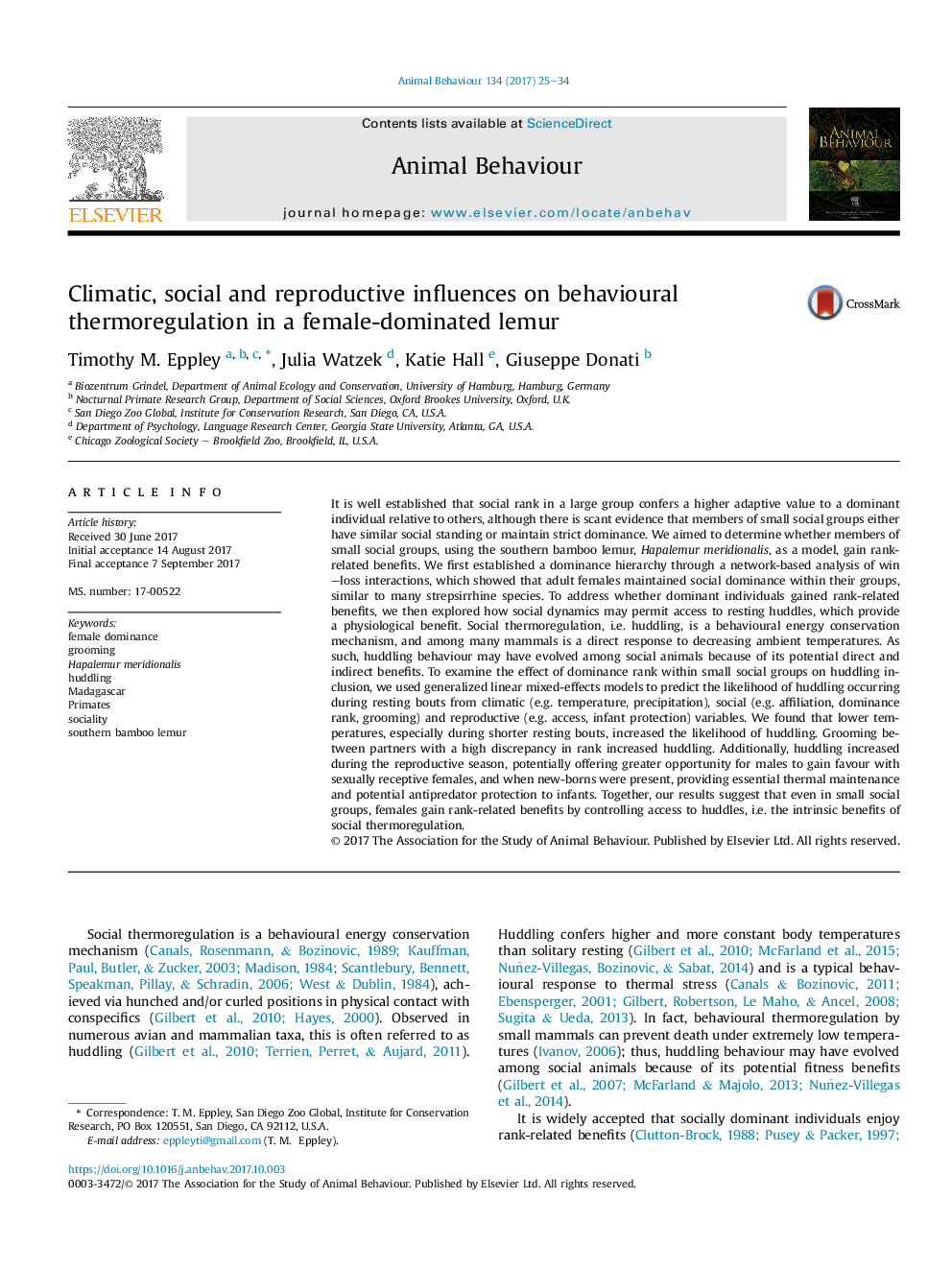It is well established that social rank in a large group confers a higher adaptive value to a dominant individual relative to others, although there is scant evidence that members of small social groups either have similar social standing or maintain strict dominance. We aimed to determine whether members of small social groups, using the southern bamboo lemur, Hapalemur meridionalis, as a model, gain rank-related benefits. We first established a dominance hierarchy through a network-based analysis of winâloss interactions, which showed that adult females maintained social dominance within their groups, similar to many strepsirrhine species. To address whether dominant individuals gained rank-related benefits, we then explored how social dynamics may permit access to resting huddles, which provide a physiological benefit. Social thermoregulation, i.e. huddling, is a behavioural energy conservation mechanism, and among many mammals is a direct response to decreasing ambient temperatures. As such, huddling behaviour may have evolved among social animals because of its potential direct and indirect benefits. To examine the effect of dominance rank within small social groups on huddling inclusion, we used generalized linear mixed-effects models to predict the likelihood of huddling occurring during resting bouts from climatic (e.g. temperature, precipitation), social (e.g. affiliation, dominance rank, grooming) and reproductive (e.g. access, infant protection) variables. We found that lower temperatures, especially during shorter resting bouts, increased the likelihood of huddling. Grooming between partners with a high discrepancy in rank increased huddling. Additionally, huddling increased during the reproductive season, potentially offering greater opportunity for males to gain favour with sexually receptive females, and when new-borns were present, providing essential thermal maintenance and potential antipredator protection to infants. Together, our results suggest that even in small social groups, females gain rank-related benefits by controlling access to huddles, i.e. the intrinsic benefits of social thermoregulation.


